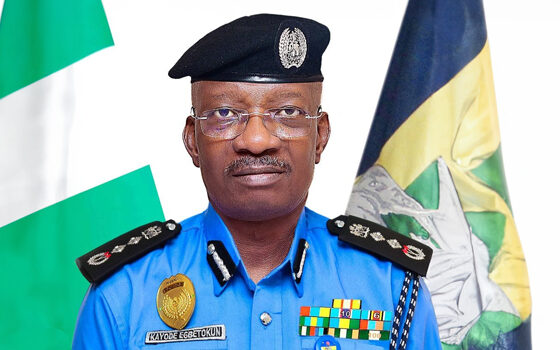News
PSC’s order on police retirement transformative, fair, says Group
…insists Egbetokun’s tenure extension legal
AJAGBE ADEYEMI TESLIM
SPONSORED BY: H&H
A socio-political group, the Citizens for Ethical Leadership & Law (CELL), has expressed support for the Police Service Commission’s (PSC) recent decision to retire senior police officers who have spent over 35 years in service or are above 60 years old, describing the move as transformative and fair.

The PSC reexamined its earlier policy on police retirements. The commission in 2017 issued a rule that allowed officers to use their enlistment dates and not appointment dates to determine their retirement dates but this policy has now been reversed.
However, Mathew Chibuzor Ekalonu, President of CELL, said the PSC acknowledged that the previous policy contradicted the principle of the merger of service in the public service and violated Public Service Rule No. 020908 (i & ii), which mandates retirement on the attainment of 35 years in service or 60 years of age.
“The decision made by the PSC in 2017 to base retirement on enlistment dates inadvertently created an imbalance in the force,” Ekalonu said. “We are delighted that the commission has passionately revisited its position and concluded that the earlier approach violated the merger of service principle and was inconsistent with the Public Service Rule, which clearly outlines the retirement guidelines. This was a much-needed correction. This reconsideration shows the PSC’s commitment to ensuring that the police force operates by legal and administrative norms, promoting fairness and efficiency.”
He said the previous arrangement, which permitted officers to extend their tenure based on their enlistment dates, had fostered a system that discouraged the younger generation from progressing within the force.
“The previous arrangement had a significant flaw, as it allowed certain senior officers to remain in service for longer periods, thereby stifling career advancement for younger officers. The PSC’s recent decision ensures that the police force remains dynamic, offering younger officers the opportunity to introduce fresh ideas and energy into the system. The PSC’s decision is not just a legal step, it’s a move to restore fairness and allow younger officers the opportunity to climb the ranks and bring fresh perspectives to policing in Nigeria. When older officers remain in service well beyond the prescribed retirement age, it limits the chances of younger officers to step up and make a difference,” Ekalonu stated.
While CELL fully supports the PSC’s retirement directive, the group also stands firmly behind the tenure extension of Inspector-General of Police (IGP) Kayode Egbetokun, asserting that his continued stay in office is entirely lawful and aligns with the amended Police Act.
According to Ekalonu, Egbetokun’s continued stay is peculiar because an amendment was made to the Police Act as regards the tenure of an Inspector General of Police just before his retirement time and it would be unfair to the officer if he is denied the opportunity to benefit from such amendment while still in the Force.
He said that CELL’s stance on extending Egbetokun’s tenure does not conflict with Civil Service rules which normally bar officers from serving beyond 35 years or after turning 60 because an Act of Parliament specifically supports the IGP’s extension.
He said the law allows Egbetokun to complete his four-year term, which began on October 31, 2023, and will now end on October 31, 2027
“According to the law, the appointment of IGP Egbetokun, which began on October 31, 2023, would have normally ended when he turned 60 on September 4, 2024. However, before reaching the retirement age, the Police Act was amended to allow him to complete the full four-year term as stipulated in Section 7(6) of the Act, even if he has already reached 60 years of age,” Ekalonu explained.
“The National Assembly in their wisdom deemed the amendment necessary to ensure an IGP could complete his term without disruption, which is crucial for the long-term planning and reforms needed in the police force. This provision is designed to give the police leadership the stability it needs to drive meaningful change.
“This statutory extension of Egbetokun’s tenure is not only legal but also ensures that the leadership of the police force remains stable, allowing for the completion of ongoing reforms and ensuring continuity in police operations. It follows international best practices, where police chiefs serve a fixed term to allow for long-term planning and effective implementation of reforms,” Ekalonu stated.










